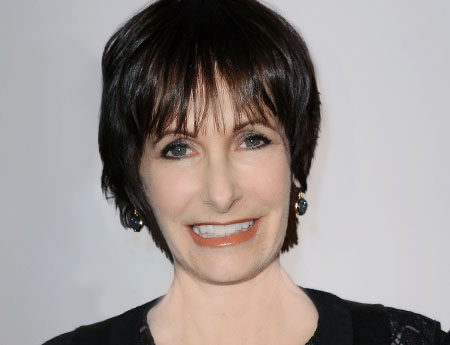Producer Excels at Bringing ‘Dead’ to Life

The smarter way to stay on top of broadcasting and cable industry. Sign up below
You are now subscribed
Your newsletter sign-up was successful
When he wasn’t giving first-chance filmmaking opportunities to what are now some of Hollywood’s best-known directors, legendary producer Roger Corman was handing out sage guidance. Gale Anne Hurd, among today’s most successful film producers and executive producer of AMC’s The Walking Dead, still recalls one of the best pieces of advice she received from Corman, her first boss.
Shortly after the surprising success of Hurd’s 1984 futuristic classic The Terminator, Corman told her many were still expecting her to fail. “‘People are going to tell you that The Terminator is a fluke, that you got lucky once,’” Hurd recalls Corman saying. “‘Don’t believe them.’”
Corman was right. Hurd’s film credits include Aliens, Armageddon, The Incredible Hulk and two Terminator sequels. “I wouldn’t have a career if my first job wasn’t working for Roger,” says Hurd.
‘Dead’ and Loving It
The Walking Dead premiered in 2011 and returns for season 5 Oct. 12. Last season it averaged 13.3 million viewers—8.6 million of them in the advertiser-coveted adults 18-49 demo.
Hurd retains a zombie-like commitment to the popular series, mindful of the pitfalls that can occur with successful shows. “No one feels we can [rest] on our laurels,” she says.
Hurd says one of the biggest reasons for the show’s success came when she, Walking Dead comic book creator Robert Kirkman and Oscar-nominated filmmaker Frank Darabont (The Shawshank Redemption) developed the series. They were determined to avoid any typical TV series filming conventions.
The smarter way to stay on top of broadcasting and cable industry. Sign up below
“We wanted it to be more cinematic,” says Hurd. They approach each eightday shoot like a mini-movie, with actors “taking the zombie apocalypse seriously in their performances,” she says.
Showrunner Scott Gimple has long relied on Hurd’s perspective. “Gale has been a fount of wisdom,” he says. “Whenever I’m looking for a bit of expertise, I hit her up.”
Walking Dead is Hurd’s first smallscreen foray after years of blockbusters and small-budget indie films. “You can sense when the winds of change are blowing,” she says, noting that studios were beginning to make fewer films. “It was clear that the film industry was becoming more challenging.”
As a result, Hurd is expanding her reach into TV. A companion Dead series for AMC is currently in the pilot stage, and there’s also an adaption of Annie Jacobson’s bestseller Area 51: An Uncensored History of America’s Top Secret Military Base with X-Files creator Chris Carter. Syfy picked up her alien drama Hunters last month, and she is helping famed comic book author Warren Ellis with his small-screen debut.
Hurd’s own debut came after studying at Stanford with professor Steven Kovacs, who was soon hired by Corman as head of production at his New World Pictures. Kovacs later recommended that Corman hire Hurd as an assistant.
She originally started on the marketing side for New World but shared a desire with Corman to get into film production. “He made me start over at the bottom,” Hurd recalls. “There is really no substitute for hard work and doing your homework and being prepared.”
It led her in time to Terminator, cowritten with her first husband, James Cameron. After another marriage to filmmaker Brian De Palma—and the birth of her daughter, Lolita—Hurd wed screenwriter Jonathan Hensleigh.
Professionally, her greatest love affair continues to be with the science fiction genre, leading her to be dubbed “The First Lady of Sci-Fi.” She is particularly enthralled with the genre’s ability to mirror real-world issues against a very unreal backdrop. “You’re able to subtly comment without making a message movie or series,” she says.
And that’s part of the great appeal of The Walking Dead, which, despite being set within a zombie apocalypse, stands in for real-world issues. “How do people survive when they are facing the breakdown of law and order?” Hurd asks.
It is a question Hurd will continue to explore.
